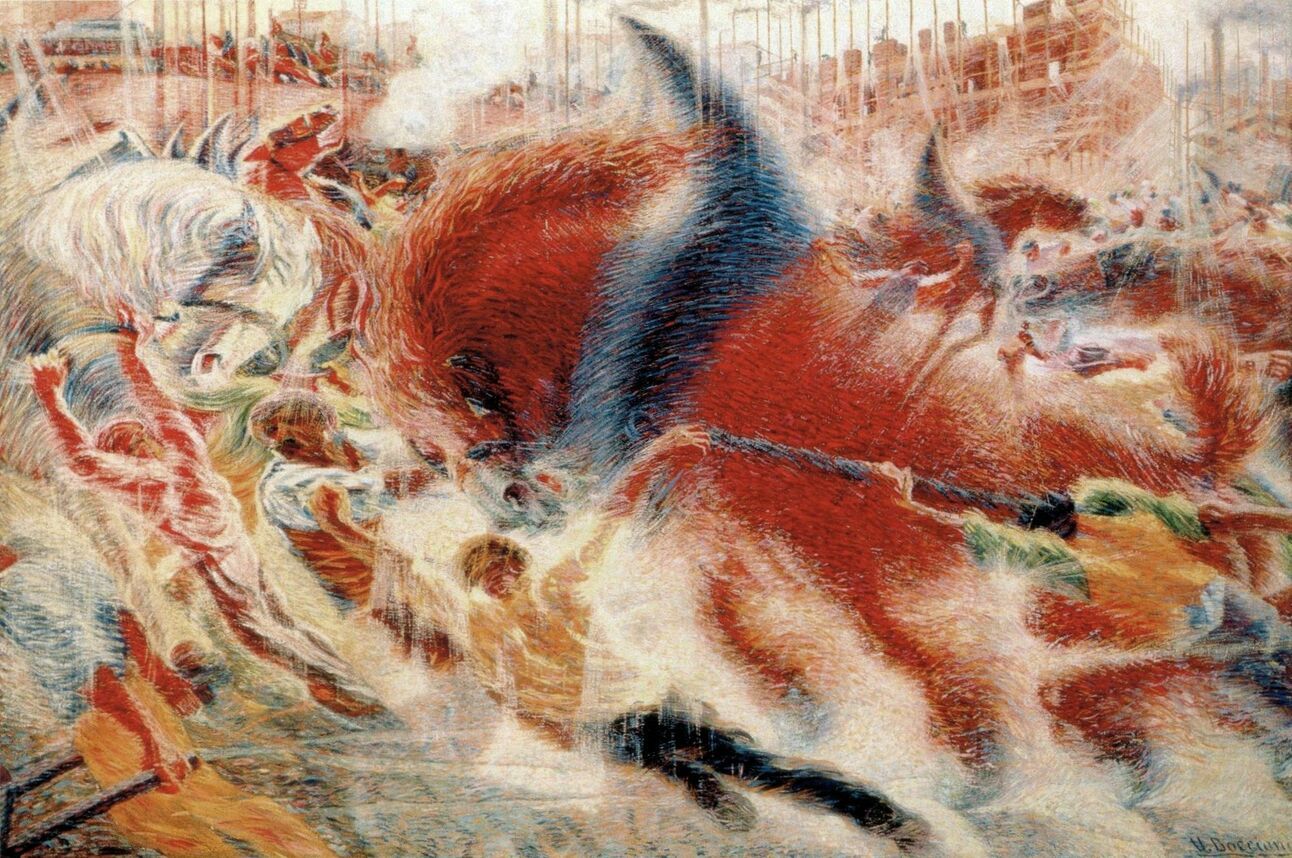
The City Rises (1910) by Umberto Boccioni
In April 2012, Instagram had 13 employees when it sold to Facebook for $1 billion. This impressive achievement took founders Kevin Systrom and Mike Krieger two years.
I expect that, within 10 years, a group of 10 people or less will bootstrap a billion dollars of value in less than one year.
In this post, I explain how they'll do it.
LLMs will significantly decrease the time required for DAOs to become viable for normal entrepreneurial projects.
One critical unlock would be the mass adoption of personal servers, but to understand why, let's go over some preliminaries.
First notice that Bitcoin, Ethereum, and a few DAOs are already AIs. Quite technically, they are machine intelligences with distributed humans-in-the-loop. It's important to see that crypto and LLMs are, in this sense, natural bedfellows.
The DAO is no less value-multiplying than the Joint-Stock Corporation (which made modern capitalism possible) but right now the various frictions and costs of building and running a DAO are way too high for any human enterprise except a small number of crypto software protocols like Uniswap.
LLMs will make DAOs more feasible for more groups by decreasing software production costs. When 10 friends can create non-trivial, fully-automated, value-generating software processes by describing in English what they want, they will obviously prefer payment infrastructure that is also maximally programmable. If necessary, they will build such payment infrastructure in order to enjoy it, and obviously they will build it with crypto rather than USD because crypto is more programmable. LLMs make DAOs more attractive, and LLMs will be used to make DAOs more efficient and effective.
But coordinating multiple human contributors will remain a bottleneck for quite some time, relatively. All of a sudden, the limiting constraint on 10 smart guys building a valuable software product is not the scarce skill of programming; it's knowing each other, liking each other, effectively ideating together, trusting each other to follow through, and sharing a unique angle (edge) that would inform, motivate, and sustain a valuable product and brand. These latter things are now harder to obtain than functioning code.
DAOs will takeoff when many normal humans can easily link their own individual LLMs for shared collective goals. Shared collective goals imply the above intangibles.
Individuals will never be able to generate collective self-determination, let alone execute self-determination through LLMs and DAOs so long as: their personal computers cannot share state; their networking runs through servers owned by distant corporations with conflicting motives; and all discussion/creation is run through a thousand different web apps, which individuals cannot directly modify.
Thus, the first people who will really unlock the power of LLMs and DAOs will be people using personal servers with deterministic, networked operating systems. In a word: Urbit.

Related reading (August 2022)
This is why I'm growing more explicit and public in describing the Other Life community on Urbit as an early but veritable network state.
Perhaps the most interesting implication of the billion dollar personal server thesis?
You don't need to convince the public of anything.
You only need to find 9 smart people who truly understand.
The Other Life network state is now free to join. We give you a fully-fledged personal server and desktop app, featuring a complete communications suite, integrated crypto wallet, and voice chat on the peer-to-peer, censor-proof Urbit network. Host groups, share apps, publish newsletters, and much more. When data, ownership, and money are fully programmable, I believe the result will be a sovereign, decentralized network state. Learn more here.